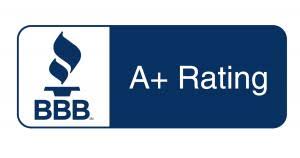WHY BANKRUPTCY WILL PROBABLY NOT HURT YOUR CREDIT IN THE LONG RUN
The most frequent question we are asked by clients filing bankruptcy is whether they will be able to keep their home and car. The second most frequent question is how the bankruptcy will impact their credit in the future. The truth is that most people filing bankruptcy already have significant credit problems. Although some people do come into our office when they are still current on all of their bills, the vast majority do not see us until they are at least a few months behind on their credit card payments, car loans, or mortgages.
We always tell clients that the decision to file bankruptcy should have absolutely nothing to do with your future credit. It should be based solely upon your present debt situation and your ability to repay your creditors. As a practical matter, if you cannot pay your creditors on time, then your credit score is likely to deteriorate for many years before it levels off and starts to improve.
Traditionally, a good credit score is considered anything over 680. This is generally sufficient for you to obtain vehicle loans and mortgages within a percentage or two of the best interest rates available. To obtain an unsecured credit card with a credit line of more than $1,000, you probably need a credit score of at least 700. It is extremely rare for a client coming into our office to have a score of 680, let alone 700. Typically, by the time a client comes to see us, his or her credit scores are probably is the 500’s or perhaps low 600’s. They could not really obtain credit for anything, except maybe a high interest rate car loan or a secured credit card.
Here is an example of how your credit is impacted when you start to fall behind. Let’s say that you have $20,000 in credit card debt and that you have been making all of the payments on time every month. Your credit score is 710. Even though this is a good credit score, it is very likely that you will still be turned down for any additional credit if your debt to income ratio does not support your ability to pay any of the debt. That is one of the myths of “good credit.” It creates a belief that you are going to be able to continue to take out loans indefinitely and that you are benefiting by making only minimum payments on your credit cards. For most credit cards, it would take about 10 to 15 years to pay off the entire balance, if you are making just the minimum payments. So the real question is how is your “good credit score” helping you if you are straddled with debt and cannot obtain loans for the things that you truly need, such as an automobile or mortgage?
At some point, if your unsecured debt is too high, you are going to start falling behind. You may be a week late one month, and then two weeks the next. Eventually, you will fall 30 days behind on one or more credit cards, and you will experience a significant drop in your credit score. It would not be unusual for your credit score to drop from, say, 700 to 650. It is at that point that a person may finally realize that their good credit was an illusion, and then they essentially give up on paying the creditors. Of course, as the debts continue to fall further and further behind, the credit score will continue to drop.
After about six months, the credit card companies will “charge off” the debt. Some people believe that this charge off means that the debt is no longer being pursued. This is certainly not the case. A charge off is simply a tax designation made by the creditor that allows them to take the uncollected money as a tax deduction on their corporate tax return. The creditor may continue to pursue collection within its internal collection department. More likely, it will either refer the matter on to a collection agency or sell the obligation to a third party debt purchaser. The latter is becoming increasingly more common. For large bank creditors it is simply not worth their time and money to collect individual debts from hundreds or thousands of consumers. Instead, they sell the accounts in large pools to outside companies for a few cents on the dollar. The third party debt purchasers are typically much more relentless in their pursuit of the debts than the original creditor. While some people are under the belief that debts can be settled for 20 or 30 cents on the dollar, that is generally not the case with a third party debt purchaser. We have seen many such creditors refuse to settle debts for less than 75 to 80 cents on the dollar.
Once you get to the point of having active lawsuits or judgments against you, your credit score is probably going to be in the low 500s or maybe the high 400s. If the debts are not addressed, your credit score will remain at a very low level for a number of years. f you have judgments against you, they are enforceable for up to 20 years, and these can result in wage garnishments, bank account restraints and other collection activity. Yes, at some point, your credit score will start to improve even when you have defaulted debts and judgments, but if this is your situation (or you think it could become your situation), you should take action immediately. It makes no sense to wait until your finances continue to disintegrate in order to make the decision about a bankruptcy filing.
My point here is simple. If you handle your credit responsibly, you will be able to obtain credit for things that you truly need within a few years, as long as your income is sufficient to support the debt. However, do your best to learn to live with less rather than more. I promise you that you will be much happier for it, and people around you will come to admire you for your discipline. For every ten people on the road driving a Mercedes or BMW, you can be certain that eight or nine of those people are under significant financial strain, worrying about how they are going to make the car payment at the end of the month.
If you make the decision to file bankruptcy, the immediate impact on your credit score is going to vary significantly depending upon your credit score and other factors on the date that your case was filed. For example, if you have been making all of your credit card payments on time, your credit score may drop more than for someone who already has multiple judgments or collection lawsuits against them. However, a person with a very good payment history before the bankruptcy is likely to see their credit improve much faster than somebody with other types of collection items on their credit report. The bankruptcy, by itself, is only one credit reporting item. Your credit report is based on many factors, including the payment history on your individual accounts. One of the common myths about filing bankruptcy is that your credit score is gong to drop and stay poor forever. This is absolutely not true. In fact, your credit score may drop very little when you file bankruptcy because it may already be so low.
The real question is not how much your credit score will drop with the bankruptcy filing, but rather how quickly will it improve and what steps can you take to make that happen. As indicated above, the person that does not file bankruptcy is likely to have their credit score remain low for many years without any hope of improvement. However, when a bankruptcy is filed and discharged, all of your dischargeable unsecured debt will be eliminated. This does not mean that the prior payment history on the accounts will magically disappear from your credit report. However, it does mean that your credit report will show that the amount actually owed for any of the creditors covered by the bankruptcy discharge is zero. Even in the short run, the elimination of this debt will have a favorable impact on your credit because a potential lender is going to feel much more comfortable loaning money to a person who has no other competing debt each month than to a person who is not paying any of their other creditors at all.







